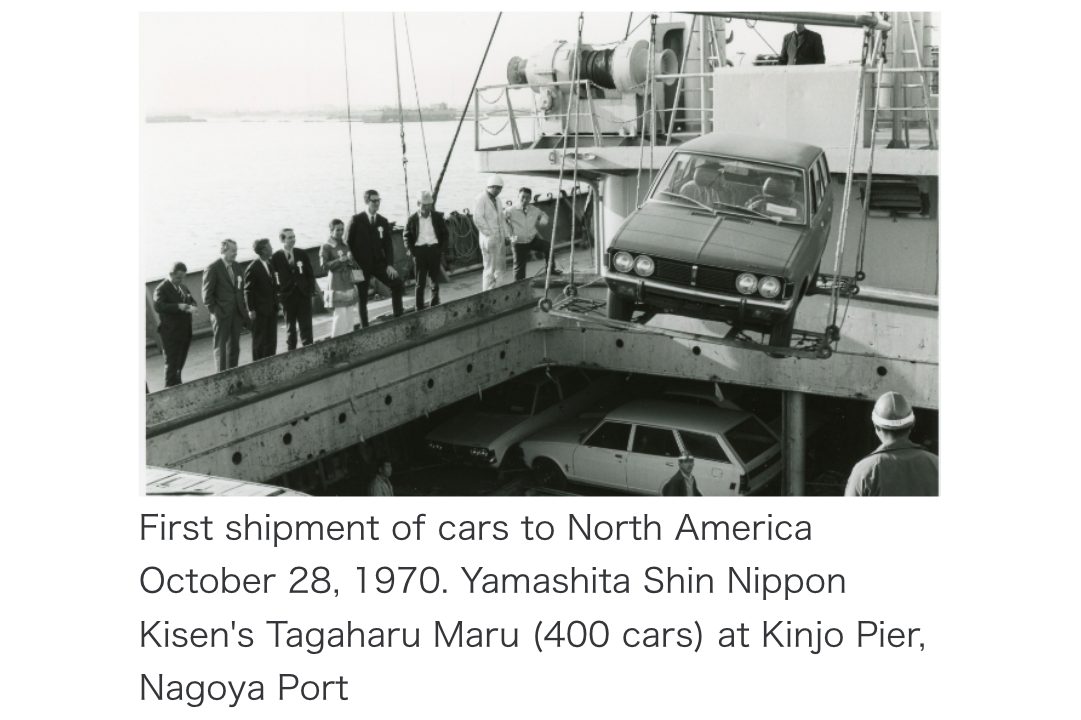Mitsubishi Is Trying To Reinvent Itself
Mitsubishi is trying to get back into the game, GM's plant closures could indirectly screw over Ford and Fiat Chrysler, discussion on electrification and its effects on jobs. All this and more in The Morning Shift for Monday, October 28, 2019.
1st: Mitsubishi Is Trying To Reinvent Itself
Japanese automaker Mitsubishi has been struggling with sales in the U.S. for some time now, in part because of, according to CEO of Mitsubishi North America Fred Diaz's own admission in June of last year, "very poor awareness as a brand." This surprises no one; if you've paid any attention at all to the badges on the cars on American roads, you have probably noticed an absence of the Three Diamond Mark. Nobody buys Mitsubishis. Nobody even thinks about Mitsubishis.
But as Diaz told our own Mack Hogan last year, the brand is making moves to change all that. And, as Automotive News points out in a recent story, some of those moves are literal, with the brand relocating its shop to the North American home of its alliance partner, Nissan. From the article:
[Mitsubishi] is leaving behind its campus in Cypress, Calif., just miles from Seal Beach, for leaner digs in friendly Franklin, Tenn., as part of a broad corporate strategy of turning the diminished brand into more of a nimble startup, quickly dispensing with old practices that aren't working in favor of new ones that take some inspiration from tech culture trends.
The website then goes on to quote Mitsubishi's communications senior director Jeremy Barnes, who talks about how the brand plans to focus on making its workplace hip and cool to attract talent:
"As we bring a new worker to the company, maybe someone who has come from a high-tech background, or a smaller company maybe not in the corporate world and they're used to different work styles and different work schedules, we want to make sure we can accommodate all of the people we are trying to attract to the company," said Jeremy Barnes, senior director of communications for Mitsubishi Motors North America.
"It really is a complete reinvention of everything that we do in the U.S., whether it's looking at new organizational structure, whether it's changing job functions based on our new approach to the future of our growth," Barnes said. "Employee culture is going to be absolutely critical."
The story also mentions that Mitsubishi plans to institute a "flexible work schedule" instead of a typical nine-to-five setup, and a "relaxed dress code." Plus, there's a move to an "open layout" instead of the cubicles found in the old office, "collaborative work areas to reduce the scourge of closed-door office meetings," and "bottomless cups of free gourmet coffee." Oh yes, Mitsubishi wants to Google-ify its workplace.
Automotive News says Mitsubishi invited approximately 60 of the 250 employees from the California office to move to Tennessee, with the company looking to hire another 150 locally and from around the country.
This move and the associated changes to workplace culture are just small steps in Mitsubishi's plan to crank up its sales in the U.S., which totaled under 96,000 through the first nine months this year. That's pretty weak, considering Nissan sold more Rogues in three months than the whole Mitsubishi brand sold in nine.
But as Automotive News points out, Mitsubishi sales have grown over the past couple of years, and as the brand shifts to using more Nissan bones (like the new Rogue platform in the Mitsubishi Outlander), who knows what will happen.
2nd: How GM’s Plant Closures Might Have Screwed Over Ford and GM
"Pattern Bargaining" is a practice involving the United Auto Workers negotiating with a "target" automaker to establish a contract, and then using that contract as the basis for negotiations with other automakers. This strategy, Automotive News points out, may end up hurting Ford and Fiat Chrysler quite a bit this time around.
That's because GM's contract, ratified late last week, involved some serious concessions, agreed to in part because of General Motors' desire to close a number of U.S. manufacturing plants as a part of corporate "restructuring." Those concessions, per the UAW, included "an $11,000 per member signing bonus, performance bonuses, two 3% annual raises and two 4% lump sum payments and holding the line on health care costs."
While GM has agreed to keep the Detroit-Hamtramck plant around to build electric vehicles, three others—including the Lordstown Assembly plant and propulsion plants in suburban Detroit and in Baltimore—are being shuttered, and you can bet that contributed to the UAW's push for better pay and benefits. The problem for the other two automakers, Ford and FCA, is that they're not asking for plant closures, but they have to use GM's contract as a precedent. So in a way, they may have to indirectly pay for GM's restructuring. From Automotive News:
Because neither Ford Motor Co. nor Fiat Chrysler Automobiles is asking for plant closures — on the contrary, FCA is building a plant in Detroit that will employ thousands of new workers — the contract's benefits for those automakers are slim.
If Ford and FCA use GM's agreement as a template, as expected, Dziczek said, "what are their wins at the table?"
Reduced health care costs, for example, would have benefited all three companies. Under the pattern-bargaining philosophy, the union likely will demand the same wage increases and lump-sum payments from FCA and Ford.
The story continues:
"Because FCA and Ford have no particular issues of plant closures to negotiate, the fact that GM paid up to get those plant closures will also impact Ford and FCA," said Houchois, the Jefferies analyst. "The pain of fixed costs on the labor side will be shared, but on the capacity side, it's a net gain for GM."
The lump-sum payments, wage increases and bonuses made the latest contract expensive for GM, added Schwartz.
The story cites the Center for Automotive Research when it points out that GM's hourly workers make, on average, $13 an hour more than what "international automakers in the U.S." pay, and that the new contract isn't likely to reduce that figure, writing:
The automakers went into this year's negotiations aiming to narrow that gap, but the wage increases, lump-sum payments and uncapped profit-sharing are likely to raise costs instead, said Kristin Dziczek, vice president of industry, labor and economics at the center.
This should be interesting. Ford is up next.
3rd: At Least The Deal Shouldn’t Cause a Recession in Michigan
Shortly after the 40-day strike began, the Detroit News wrote a story about how an extended production stoppage at GM could tank Michigan's economy. The good news is that, now that a contract has been ratified between the automaker and the UAW, the same site reports that The Mitten will be just fine:
Michigan isn't falling into a recession after a six-week national strike by more than 48,000 United Auto Workers members against General Motors Co., according to forecasters at the University of Michigan.
Thousands of UAW-GM employees nationally are returning to work for the first time Monday after the union on Friday ratified a tentative agreement with the Detroit automaker, ending the longest national strike against GM since 1970. Despite the 40-day walkout, the new contract over the next four years promises wage increases, lump-sum bonuses and record ratification payments that mostly will make up the picketers' wage losses.
The story quotes Daniil Manaenkov, a forecasting specialist for the Research Seminar in Quantitative Economics at the University of Michigan, who described how a strike lasting into mid October would affect the state:
"It's significant, but it's not tipping Michigan into a recession," Manaenkov said. "The auto sector is large when compared to other sectors, and we are an auto-dependent state more than others, but that's a comparative statement. All the parts suppliers, metalwork and all the other parts and GM is a fraction of overall economic output."
Sounds like Michigan will be all right.
4th: There Are Some Deep Concerns About Electrification And Its Effect on Jobs
An interesting discussion that's been going on for a while now involves electrification and its effects on labor, with concerns that, due to their simplicity, electric cars will require fewer workers. The Detroit News' Henry Payne wrote an opinion piece on this topic, and how it relates to the UAW. He says the union is deeply worried following a number of studies showing that EVs require less labor to build, and that the organization is concerned that the change in propulsion system could move jobs away from union shops.
From the story:
Long supporters of government mpg mandates to force a transition to EVs, the UAW has gotten cold feet as studies — including one from its own research department — show battery-powered vehicle production takes less labor to manufacture.
"The shift to EVs ... involves a fundamental change in the key components that power the vehicle," says a UAW research paper, "Taking the High Road: Strategies for a Fair EV Future," published this spring. "Such a change will have disruptive implications for the auto industry (including) changes in where and under what condition vehicles and key components are made, employment declines in powertrain manufacturing, and the entrance of new corporate actors without a U.S. manufacturing base."
The UAW even voiced its concerns in its contract with GM, creating a special committee to ensure that the shift to EVs won't detrimentally affect the workforce:
The just-negotiated UAW-GM proposal pledges creation of a National Committee on Advanced Technology to address coming change and devotes a section to assuring its members it will fight any job cutbacks related to a new generation of transportation:
"Your bargaining committee raised many concerns regarding the company's plans to increase its electric and autonomous vehicle lineup. They outlined how advanced manufacturing had already impacted the membership. As a result, the union won a commitment from the company to not only reaffirm that the introduction of new technology will not move work out of the bargaining unit, but also ensure UAW members will be able to retain the higher-skilled work associated with new technology.
Check out the full story here.
5th: GM’s Mexico Plants Are Getting Back Online
Remember earlier this month, when, citing the Detroit Free Press, we wrote about how GM was halting production of the Chevrolet Blazer, which is (controversially) built in Mexico? Well, that crossover-with-an-real-SUV's-name will soon continue making its way down the production line, Reuters reports. From the story:
In a statement, GM's Mexican unit said its Ramos Arizpe motors plant will resume operating on Saturday, while its transmissions plant and Chevrolet Blazer assembly line located at the same facility will start back up on Monday. The Ramos Arizpe facility is located in the Mexican border state of Coahuila, just south of Texas.
All of the plants located at GM's Silao facility, in central Guanajuato state, will restart on Monday.
Reverse: Mitsubishi Ships Its First Cars To North America
A screenshot from Mitsubishi's website showing the company's first imported vehicles to North America on this day in 1970:
Neutral: What’s It Going To Take To Get You Into A Mitsubishi?
Mitsubishi is a shell of a car brand in the U.S., but it seems like it's trying to turn that around. What do you think it will take for that to happen?

